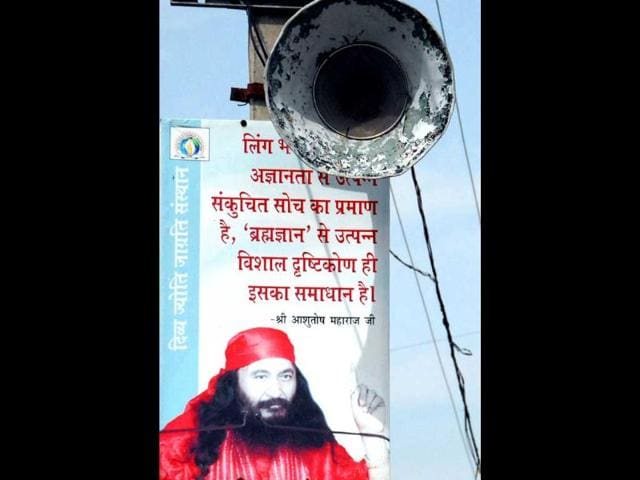HC orders last rites of Ashutosh within 15 days
The Punjab and Haryana high court on Monday constituted a committee headed by the Jalandhar district magistrate and directed it to carry out the last rites of Ashutosh, the head of Divya Jyoti Jagriti Sansthan at Nurmahal in Jalandhar, within 15 days.
The Punjab and Haryana high court on Monday constituted a committee headed by the Jalandhar district magistrate and directed it to carry out the last rites of Ashutosh, the head of Divya Jyoti Jagriti Sansthan at Nurmahal in Jalandhar, within 15 days.

The court order follows the two petitions seeking a probe into his “mysterious death” and releasing his mortal remains for performing the last rites.
The bench of justice MMS Bedi directed the Punjab chief secretary; principal secretary, home; secretary, health; secretary, local bodies; and director general of police to supervise the compliance of the court orders.
The committee constituted to carry out the orders comprises the district magistrate, sub-divisional magistrate, senior superintendent of police, municipal commissioner and chief medical officer, all officers from Jalandhar district.
The court has directed the committee to make necessary arrangements for disposal of the body by getting the services of any religious person and sought a compliance of the order.
On January 29, the sansthan doctors had declared Ashutosh clinically dead, after which the management had kept the body in a deep freezer, saying the spiritual head had gone into ‘samadhi’ (deep meditation). His mortal remains are still in the custody of the sansthan.
Soon after the hearing, sansthan counsel RS Rai told mediapersons that they were not satisfied with the order and would challenge it.
The high court declined to give the mortal remains to Dalip Kumar Jha, who had claimed to be his son, and another petitioner, Puran Singh, who claimed to be his former driver. They had sought court direction for a CBI probe into the mysterious death and to hand over the mortal remains to them.
The court held that they “do not have any locus standi on the basis of the material produced” to claim possession of the mortal remains. But it allowed petitioners, devotees and followers of Ashutosh to participate in the last rites subject to public order.
“It is not a practice protected by their religion (keeping the body in samadhi) under Articles 25 and 26 of the Constitution. It is their fundamental duty under Article 51 (A) to develop scientific temper, humanism and the spirit of inquiry and reform,” the court observed, while rejecting the claims of sansthan followers that they had got the religious right to retain the body for an uncertain period.
The court has authorised the committee to decide about the mode of disposal of the mortal remains after cremation, by burial or immersion, further directing that the mortal remains should be kept with respect, and were not to be displayed for any other purpose except for the “last darshan” by followers.
Who is Ashutosh





